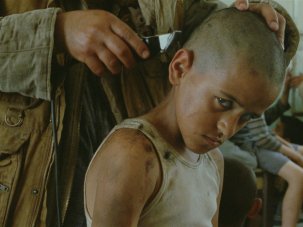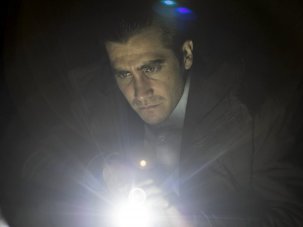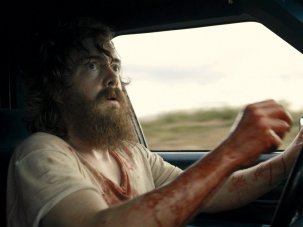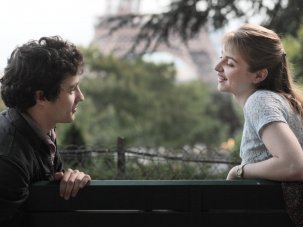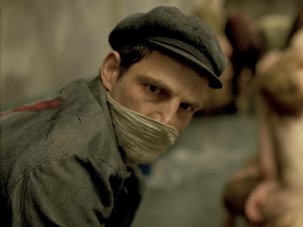Web exclusive

Sicario (2015)
The tiny shadow of a plane moves across the corner of a stunning widescreen aerial shot of the borderlands between Texas, Arizona and Mexico, the ‘land of the wolf’. This is the fabulous work of cinematographer Roger Deakins in Denis Villeneuve’s Sicario, a film in Competition here which has a way of thunderously racking up the tension of a cavalcade of sinister 4x4s heading into Juarez, Mexico’s most gang-ridden city, through some of the most astounding, howling film music I’ve heard in a while.
Excited as I hope I sound, the scene I’m describing comes from one of the films here I’ve admired less, for two reasons. First, because it so underserves its central cop character, played by Emily Blunt and characterised as a mulish old-fashioned goodie who can’t adapt to the black-ops realpolitik of Josh Brolin’s smiling spook, let alone Benicio del Toro’s unsmiling Mexican assassin. Second, its critique of the failed war on drugs is only skin-deep. But that plane shot is something, and it points to one of the great pleasures of watching films in Cannes, where the projection is usually superb and films (and the craft skills that made them) can really sing, even if only in parts.
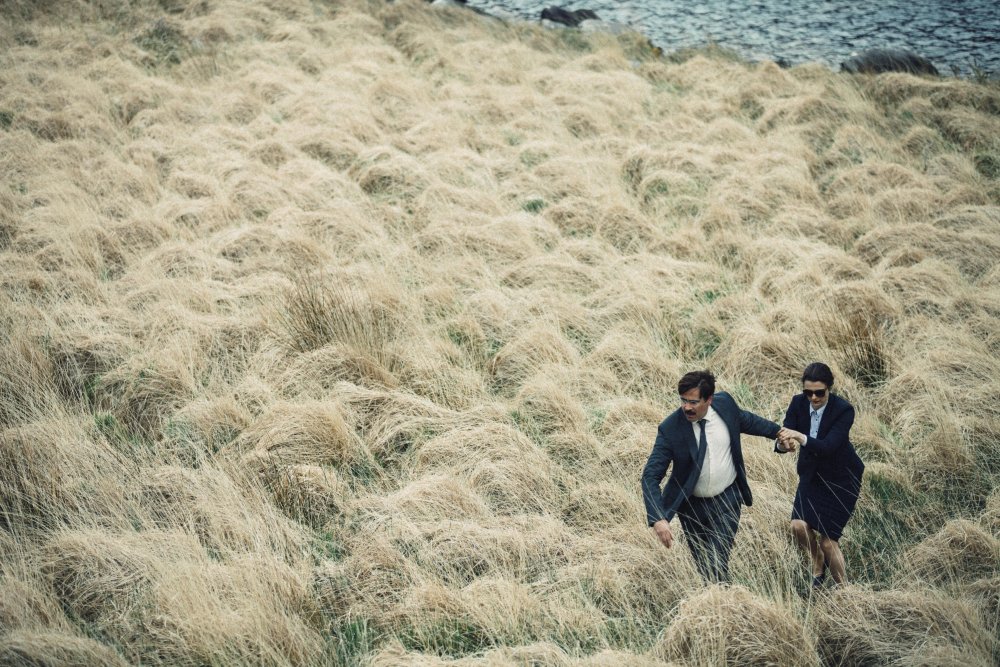
The Lobster (2015)
For viewers of the Cannes Competition this year, these pleasures have been important, because with three days to go there aren’t many obvious prize candidates (I’ll get to what they are shortly). To take two films that typify the syndrome, Yorgos Lanthimos’s Lobster sets up its droll world of people sent to a hotel and given a certain number of days to find a sexual partner or else be turned into an animal of their choice (and yes, you can see the deadlines and threats in a Greek context here). While the film remains in that environment it continually comes up with novel and/or amusing satirical an absurdist ideas, but as soon as it moves into the woods and explores a romance between Colin Farrell’s character and Rachel Weisz’s, it loses too much of its charm and momentum.
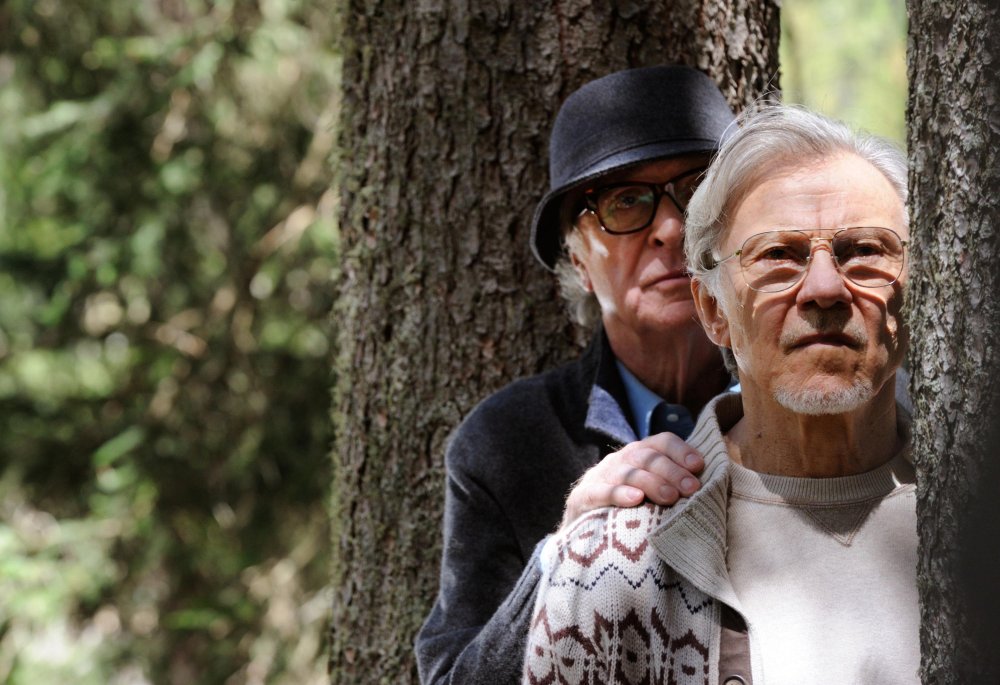
Youth (2015)
Similarly, Paolo Sorrentino’s Youth populates its Swiss spa hotel with witty characters, not least Michael Caine’s melancholic great composer and Harvey Keitel’s washed-up film director, whose jokes come off better than I expected given the arch trailer, but the sheer bathos of the piece, with its excess of Cracker Barrel philosophising and relaunch on truly terrible music crashes the whole project long before the end.
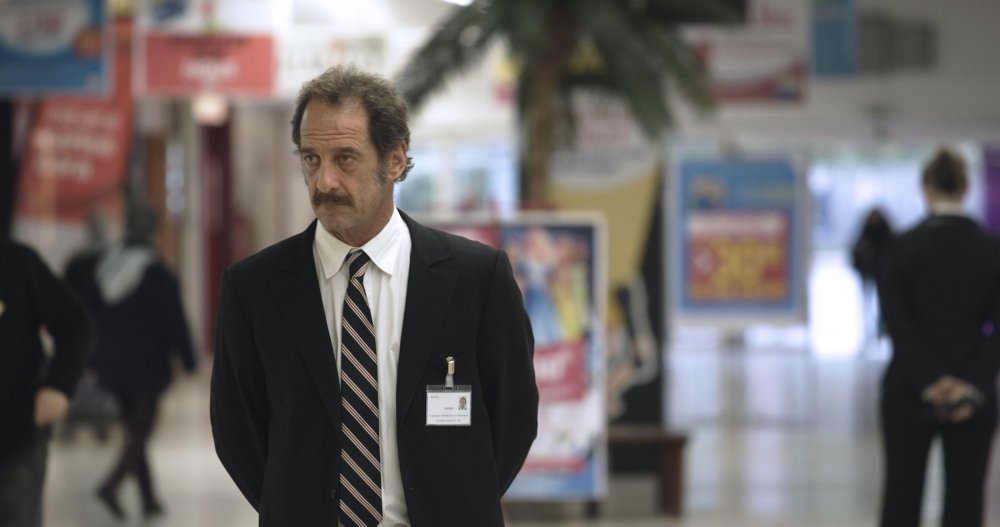
The Measure of a Man (La Loi du Marche, 2015)
And yet I’ve experienced extraordinary cinema every single day here, whether it’s the fountain of fun ideas that is The Brand New Testament, Jaco van Dormael’s joyous satire about a malicious God having a daughter who sets out to un-ruin the world he created – the Belgian director’s best film in more than 20 years – or the sober incisiveness of The Measure of a Man, Stéphane Brizé’s spot-on satire about a middle-aged ordinary guy (the ever-excellent Vincent Lindon) thrown on the capitalist scrap heap, and searching for a new job.
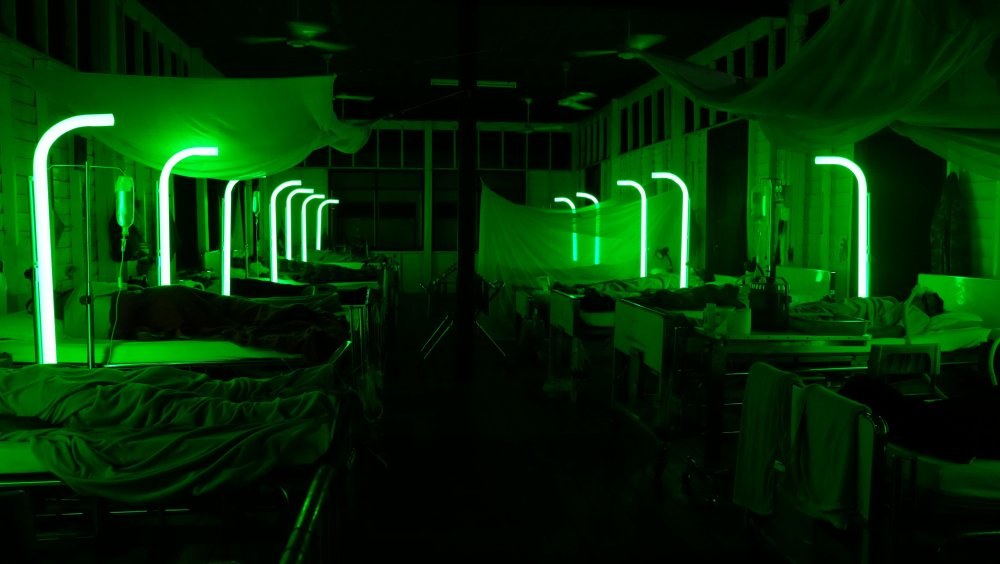
Cemetery of Splendour (Rak Ti Khon Kaen, 2015)
Brizé’s film is in Competition; van Dormael’s is from the stronger Director’s Fortnight list. Yet if we’re talking about the truly remarkable, pride of place should be given to Miguel Gomes’s Arabian Nights and Apichatpong Weerasethakul’s Cemetery of Splendour, neither of which is competing for the Palme. Having at this stage only seen part one of Gomes’s sprawling, angry, comical extemporisation on the state of Portugal – a gallimaufry of personal testimony and imaginative mythologising – I can only say that it is one of the must-sees of the year, and not just for Gomes’s cult following. Cemetery of Splendour, which follows a disabled woman’s relationship with a soldier afflicted with a sleeping sickness, is gorgeous, hard to watch, lovely and meditative, and brings together all of the expressive idioms we’ve seen the director use in the past, but needs a second look from me, in a screening where its extreme slowness of pace can be more easily dealt with than amidst the mad clamour of this festival.
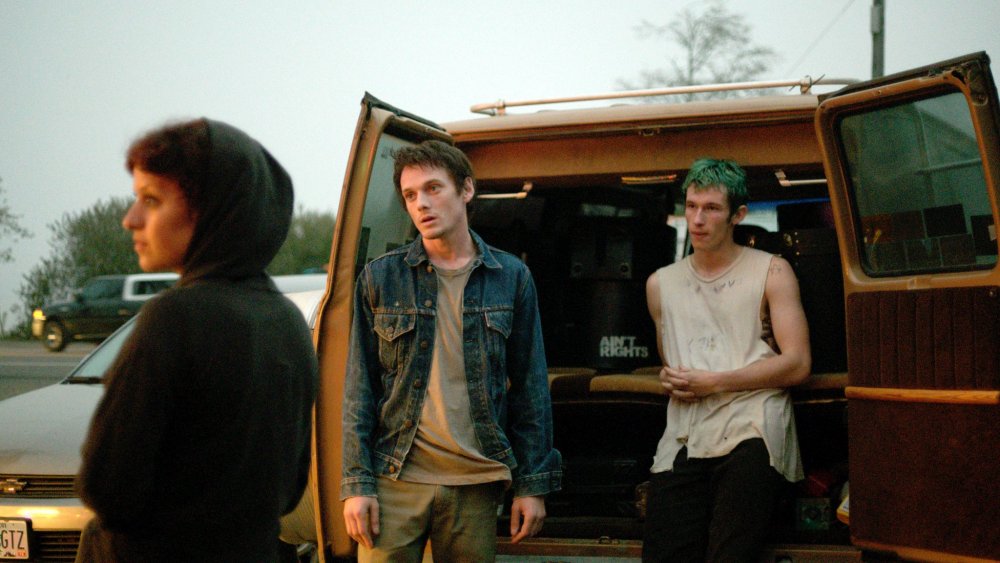
Green Room (2015)
If the Competition was down to, say, my own taste, rather than the politically complex decision of a selection panel, then films from other sections, like Amy, Asif Kapadia’s wonderfully constructed bio-doc of the tragic singer Amy Winehouse, would certainly be there (documentaries are usually excluded). So too would the grisly genre pleasures of Jeremy Saulnier’s intricate The Green Room, in which a punk band on the brink of splitting up see something they shouldn’t have backstage at a backwoods skinhead venue. Arnaud Desplechin’s heartfelt paen to a girlfriend from his youth, My Golden Years, would also make the cut, as would Alice Winocour’s intriguing if implausible thriller Maryland and Radu Muntean’s The Floor Below, a hyper-subtle study of mutual male guilt and suspicion in a Romanian apartment block.
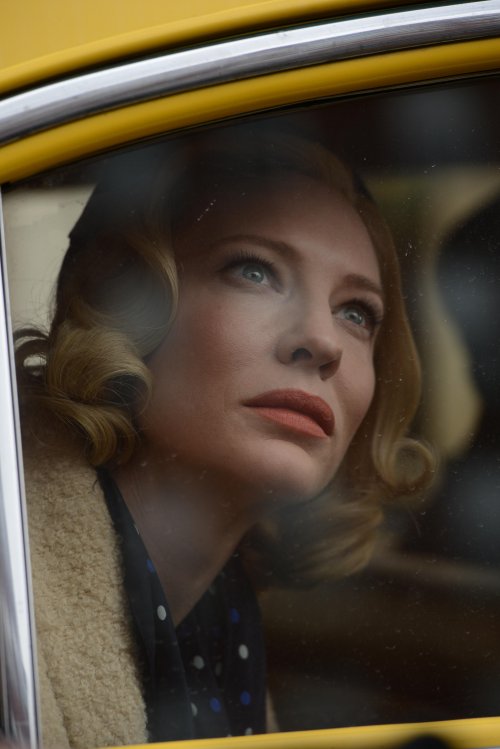
Carol (2015)
But to come, at last, to the Competition favourites, one film riding for the fall of too-high expectations is Todd Haynes’s gorgeous Carol. I adored it, and want to protect it from people walking in anticipating genius. It’s a woozy, grainy trance of a film, so in love with exactitude that its froideur would be intimidating were it not for the superb implication of raging passion beneath a glacial social surface that Cate Blanchett gives to the society lady of the title, who leaves her gloves on mooning shop-girl Rooney Mara’s counter, in hopes of the kind of discreet assignation which was all that could occur between women in the USA of 1953. But in a way there’s nothing remarkable about this gorgeous, aching and devastating adaptation of Patricia Highsmith’s lesbian novel other than the fact that it’s filmmaking as close to classical perfection as you can get.
Carol, by my reckoning, has only two competitors for the Palme d’Or, Laszlo Nemes’s impressive concentration camp drama Son of Saul, about which I’ve already written approvingly here, and the aforementioned Youth, which was rapturously received. I’ve had debates with critics about Son of Saul, some of whom feel that, despite Nemes’s strategy of pushing the iconography of the camps out of the frame, the filament of hope in the context of certain annihilation offered by Saul’s desire to bury his child according to religious rites is enough to make it yet another inadmissible Holocaust portrayal. I don’t agree, but it’s a debate we’ll run more fully in the magazine if and when the film gets a UK release. In the meantime, watch this space as the festival’s last three days play out.
-
Cannes Film Festival 2015 – all our coverage
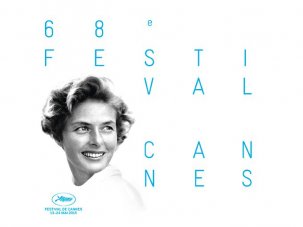
See our Posters d’Or gallery, first-look reviews and commentary on the course of the festival.
-
The Digital Edition and Archive quick link
Log in here to your digital edition and archive subscription, take a look at the packages on offer and buy a subscription.




